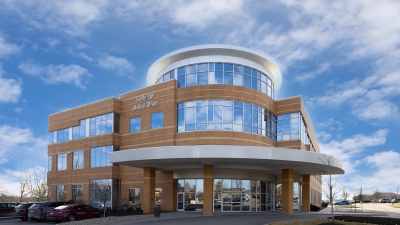Dense Breast Tissue
Having dense breast tissue increases your risk of developing breast cancer and makes interpreting your mammograms more challenging. Your provider can determine if you have dense breast tissue from a mammogram report.
Women with dense breast tissue may benefit from a Fast Breast MRI in addition to a yearly screening mammogram. During the Fast Breast MRI, the technologist will take an initial set of scans and then use an IV (in the elbow, hand, or wrist) to inject a contrast agent or dye before taking another set of scans. This exam is recommended for women with dense breast tissue because it can find more cancers than mammography alone.
We recommend Fast Breast MRI instead of screening breast ultrasound because of the MRI’s higher sensitivity (finds more breast cancers) and fewer false positives (false alarms that can lead to unnecessary breast biopsies).
Early detection gives women the best chance at successful treatment of breast cancer. At Saint Luke’s, we offer the latest technology, including 3D mammograms and Fast Breast MRI, and our fellowship-trained breast radiologists offer the highest level of interpretation. Our goal is to detect breast cancer as early as possible to save more women’s lives.
Fast Breast MRI is a retail service and not billed to insurance. The cost is $400 due at the time of service.
To schedule a Fast Breast MRI, you'll need a referral from your physician. Once the order is received, a scheduler will contact you to schedule your appointment.
Frequently asked questions
How often should I get a mammogram?
If you are at average risk for developing breast cancer, you should get a screening mammogram every year starting at age 40. These guidelines are supported by the National Comprehensive Cancer Network, American Society of Breast Surgeons, American College of Radiology, and Society of Breast Imaging.
What if I am at high risk for developing breast cancer?
If you answer “yes” to any of the below questions, schedule an appointment with Saint Luke’s High-Risk Breast Clinic to discuss a traditional breast MRI in addition to a yearly screening mammogram.
- Do you have a family history of breast or ovarian cancers?
- Do you have a known genetic mutation associated with an increased lifetime risk for breast cancer, such as the BRCA1 or BRCA2 genes?
- Do you have non-genetic risk factors, such as multiple previous biopsies or risk markers by pathology (for example, lobular carcinoma in situ)?
- Have you had a previous breast cancer diagnosis and require additional surveillance?
- Do you believe you’re at increased risk and would like the extra assurance of frequent screening?
If you’re not sure if you’re at high risk, complete this survey to see if a genetic counseling referral would be appropriate. If survey results suggest you may be at high risk, call Saint Luke’s High-Risk Breast Clinic at 816-932-5332.
What are the screening recommendations for transgender patients?
3D mammograms are recommended for transfeminine (designated male at birth) individuals 40 or older who have had five plus years of hormone use.
3D mammograms are also recommended for transmasculine (designated female at birth) individuals 40 or older who have not had bilateral mastectomies.

Saint Luke's Hospital Breast Center

Saint Luke's East Breast Center

Saint Luke's South Goppert Breast Center
Recent News
Article
Physician Encourages Breast Cancer Screenings
Article